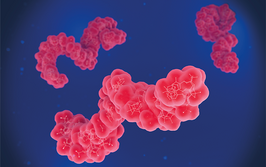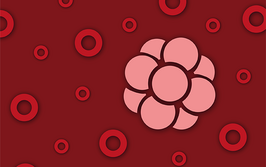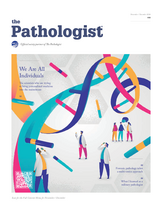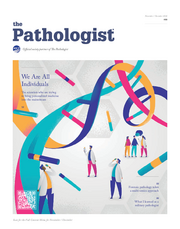
A Simple Solution?
Uterine saline lavage may be the key to endometrial cancer screening
There is currently no screening method for pre-malignant or earlystage endometrial cancer, but with an estimated 60,000 new cases and 10,000 deaths each year in the US (1), a great need exists. Now, researchers from Icahn School of Medicine at Mount Sinai, Swift Biosciences, and Jefferson School of Medicine think they’ve found a method that could provide a simple solution: next-generation sequencing (NGS) and genomic analysis of uterine saline lavage fluid (2). If detected early enough, survival rates of endometrial cancer patients improve – five-year survival rates are 95 percent for localized endometrial cancer and under 20 percent when metastasized (3). Given the simplicity and accessibility of the lavage method, which can even be performed in a physician’s office, the work may represent the first positive signs of a new gynecological screening method.
The investigators note that postmenopausal women are the highest risk group for endometrial cancer, and though diagnostic sampling isn’t as successful as hoped, they found that their screening method works equally effectively in preand post-menopausal women.
Right now, the NGS-based method only indicates whether the endometrial cancerassociated gene mutations are present rather than pinpointing patients with cancer, so more understanding of cancer development is needed. Indeed, the investigators note that their “ultra-deep sequencing” approach could offer insight in that area, by digging into the development and clonal expansion of somatic cancer-driver mutations in tissue that appears to be healthy.
- National Institutes of Health National Cancer Institute, “Cancer stat facts: endometrial cancer”, (2017). Available at: bit. ly/2jdCVsh. Accessed January 19, 2017.
- N Nair et al., “Genomic analysis of uterine lavage fluid detects early endometrial cancers and reveals a prevalent landscape of driver mutations in women without histopathologic evidence of cancer: a prospective cross-sectional study”, PLoS, 13, e1002206 (2016). PMID: 28027320.
- KD Miller et al., “Cancer treatment and survivorship statistics, 2016.”, CA Cancer J Clin, 66, 271-289 (2016). PMID: 27253694.
My fascination with science, gaming, and writing led to my studying biology at university, while simultaneously working as an online games journalist. After university, I travelled across Europe, working on a novel and developing a game, before finding my way to Texere. As Associate Editor, I’m evolving my loves of science and writing, while continuing to pursue my passion for gaming and creative writing in a personal capacity.




















